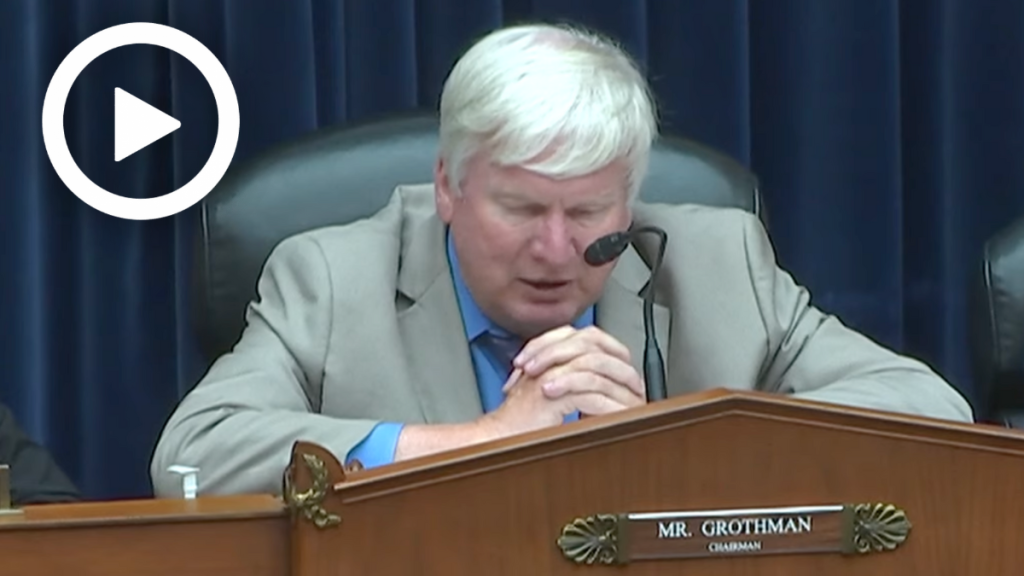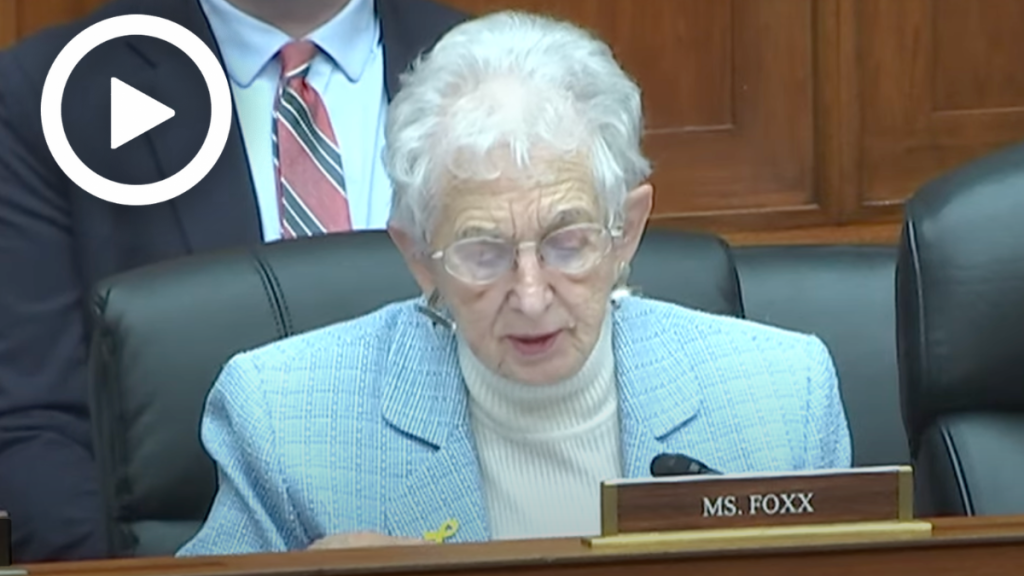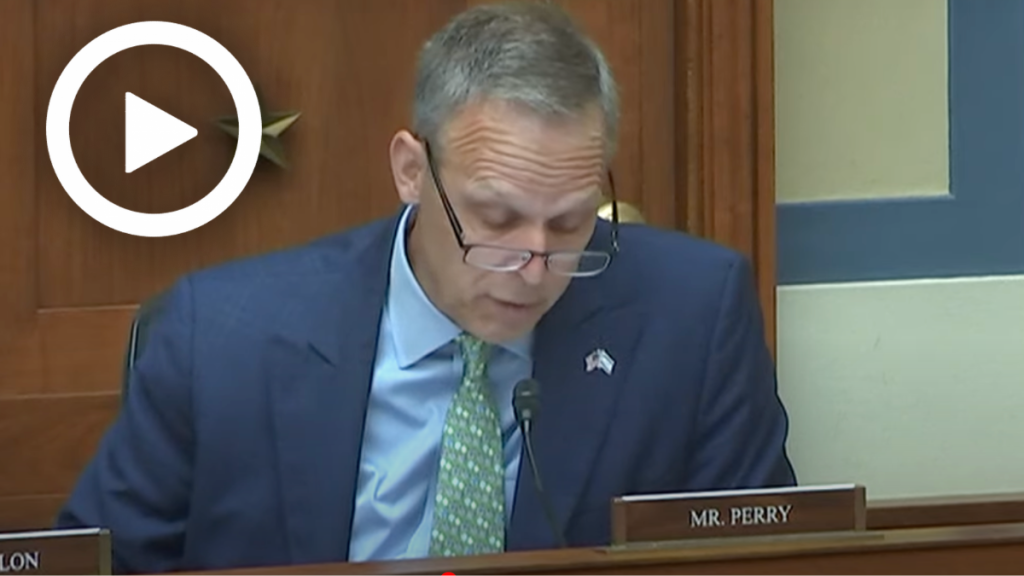Hearing Wrap Up: Lack of Oversight and Enforcement Mechanisms Allowing Rampant Waste Within DoD Programs
WASHINGTON—The Subcommittee on National Security, the Border, and Foreign Affairs held a hearing titled, “Wasteful Spending and Inefficiencies: Examining DoD Platform Performance and Costs.” Members discussed how stronger oversight and enforcement mechanisms, such as increased data analytic tools, are needed to steer the Department of Defense (DoD) towards better management of taxpayer dollars across DoD programs. Members also discussed how overloaded regulations and general bureaucracy has led to a shrinking military contractor base used by DoD which has limited avenues for contracts, stifled competition, and increased prices.
Key Takeaways:
A litany of DoD programs have experienced cost overruns and performance issues and modern mechanisms, such as improved data analytics, are needed to lower costs within programs and allow for more efficient use of American tax dollars.
- Moshe Schwartz—Senior Fellow at the National Defense Industrial Association—emphasized that the U.S. defense acquisition system takes too long to deliver capability, costs more than it should, and often does not access or fails to adopt the most cutting-edge capabilities industry has to offer: “Data analytics can improve all aspects of procurement, from estimating costs and fostering more competition, to writing contracts and implementing predictive maintenance. The data managed by DoD’s IT systems too often are insecure, unreliable, and incomplete. Many IT systems are unable to transfer data or communicate with other systems, preventing data sharing within the organizations. DoD’s IT and business systems are hampering its ability to leverage data and need to be modernized.”
The DoD has a habit of over-promising and under-delivering new platforms and, due to the culture within DoD, there is little accountability for those who allow cost overruns and performance targets to be missed.
- Mackenzie Eaglen—Senior Fellow at the American Enterprise Institute—explained how the DoD utilization of fixed-price contracts for a small portion of a planned procurement often fails to address or project the costs beyond the fixed-price units and leaves the door open for waste to occur and little room for recourse or correction when it does occur: “The Pentagon is a difficult and poor customer who lacks flexibility in contracts to match shifting technology in real-time and often changes its mind after low-balling cost estimates based on rosy assumptions about development, design, and engineering.”
Member Highlights:
Subcommittee on National Security, the Border, and Foreign Affairs Chairman Rep. Glenn Grothman (R-Wis.) honed in on the problems within the F-35 program, one of the worst offenders of cost overruns within the DoD, and the reasons why this program runs inefficiently.
Rep. Grothman: “A GAO study from May of last year found that since May of 2018, one F-35 prime contractor had lost over one million spare parts totaling $85 million, of which less than 2% had been reviewed by the F-35 joint program office. What do you believe can be done to increase accountability within this program? And to what degree is just and attitude program or an arrogance problem?”
Ms. Eaglen: “There is a culture problem at the Defense Department, I would start though even to the left of that and strongly encourage Congress to never again approve a program that starts with a “J”, joint. They become supersized, oversized, and completely unmanageable programs. It’s basically three totally separate fighter jets under one umbrella and it’s led to many of the predictable and notable problems that we have with this program today. So avoiding joint programs at all costs is one way to get better oversight and more targeted accountability for these contractors. Holding contractors accountable as well comes from more direct and active management from the program managers and officers themselves.”
Rep. Virginia Foxx (R-N.C.) highlighted how overburdensome regulation had led to a decrease in small businesses contracting with DoD has consolidated the market, lessened competition, and increased costs.
Rep. Foxx: “Mr. Schwartz, in your testimony you emphasized the need to decrease barriers for small businesses to participate in the Defense market. I agree with that position and am concerned the Department has become so reliant on a shrinking number of commercial firms which stifles competition and leads to increased cost. What would you say is the biggest reason for the decrease in small businesses contracting with the DoD?”
Mr. Schwartz: “In the polls that I have seen, and in the surveys that I have seen, it is the rules and regulations…we have a problem in the Defense Department. From FY10 to FY20, small businesses decreased by 43 percent. That is not my data, that is the government’s data. It’s not just small businesses, all other businesses fell annually by 7.3 percent. That’s an even higher percentage. Now, you can say that was only until 2020, but it has happened every year since then. Last year, entire government contracting dropped by 2.2 percent. It is the regulations, it is the bureaucracy.”
Rep. Scott Perry (R-Pa.) asked, using the example of the F-35 program, where is the inflection point where DoD should stop throwing money at problems and be forced to seek alternative, more cost-effective courses of action.
Rep. Perry: “My question for you, in the macro sense…are we beyond the point of just throwing bad money and more bad money or at what point do we say we’ve made a mistake here and it’s time to move on?”
Mr. Clark: “So Congressman, you’re absolutely right, those mission capable rates are half of what they should be…it’s a much more complex airplane than anyone anticipated it to be. The requirements they established for it set it up to fail in this way. It’s so complex, it’s so sophisticated, it has so many potential failure modes that it creates a situation for when it gets out to the field, its expensive to operate and maintain and beyond that, it has a lot more opportunities to not to work.”
Watch the hearing HERE
Read More: Grothman Opens Hearing on Wasteful Spending Within the Department of Defense


